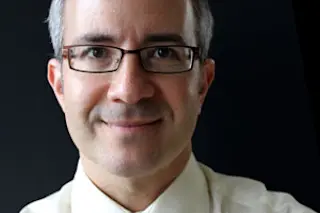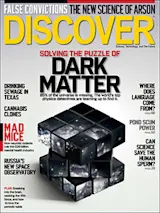To the scientist, proving that an idea is wrong is in many ways more important than proving it is right. In technical terms this process is known as falsification: testing a hypothesis against empirical data and then dismissing it if it fails to match up with reality. In conversational terms, though, it is more commonly expressed as “Can’t you people make up your minds?”
This issue of DISCOVER contains some stark examples of the overturning of old ideas. Linguists generally agreed that human language is a learned behavior, until Noam Chomsky vigorously presented contrary evidence showing that language is innate. Other shifts in thinking have more dramatic impacts. Over the years, arson experts accumulated a seemingly authoritative checklist of the telltale signs that a fire had been deliberately set. Recent experiments in big combustion labs show that many of those checklist items are, to be blunt, dead wrong. Failures of science? Hardly. There’s a marvelous quote from Carl Sagan: “In science it often happens that scientists say, ‘You know, that’s a really good argument; my position is mistaken,’ and then they would actually change their minds, and you never hear that old view from them again. They really do it. It doesn’t happen as often as it should, because scientists are human and change is sometimes painful. But it happens every day. I cannot recall the last time something like that happened in politics or religion.”
Still, that precious ability of scientists to shift their thinking can be deeply frustrating—especially when it applies to urgent matters of policy. Studies of the world’s supply of fossil fuels cite a bewildering range of numbers. One day it sounds like we are about to run out of energy; the next day it seems like we have all the time in the world. The explanation is that the data going into the calculations keep changing. Although Earth’s total storehouse of fossil fuels is fixed, the amount accessible to us grows, often drastically, as new technologies come online. For instance, the amount of natural gas available to the United States may equal 10 years of current demand . . . but with a few advances it might equal 1,000 years. Humans are very clever at developing better ways to obtain essential resources. That’s why doomsayers like Thomas Malthus and his modern counterpart, biologist Paul Ehrlich, have been proven wrong again and again.
Science is relentless this way. Its practitioners are fallible and often mistaken, but over time its process holds all ideas and hypotheses accountable to the same standard of proof. It is a beautiful paradox: Uncertainty as the optimal path toward certainty, or at least the closest thing to certainty we can get.















